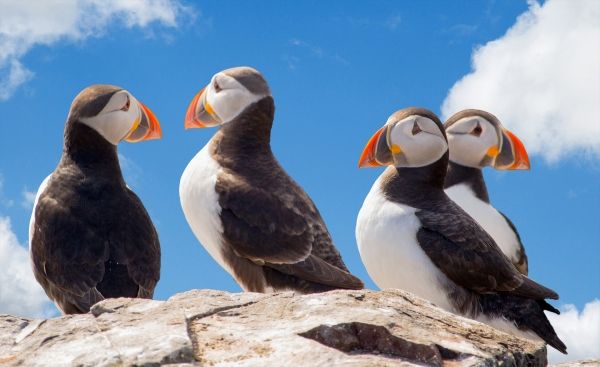Tufted puffins regulate their body temperature thanks to their large bills, an evolutionary trait that might explain their capacity to fly for long periods in search for food.
In a new study published in the Journal of Experimental Biology, researchers from McGill University and the University of California, Davis, used thermal imaging cameras to measure heat dissipation off the bodies and beaks of wild tufted puffins in the minutes after flying.
Their data showed that within 30 minutes of landing, the temperature of the puffin beaks dropped by 5°C (25°C - 20°C), while the heat radiating from their backs hardly changed. The beak “accounted for 10-18% of total heat exchange despite making up only 6%” of the bird’s total surface area.
Read more at: McGill University
Photo credit: Kaz/1719 via Pixabay


